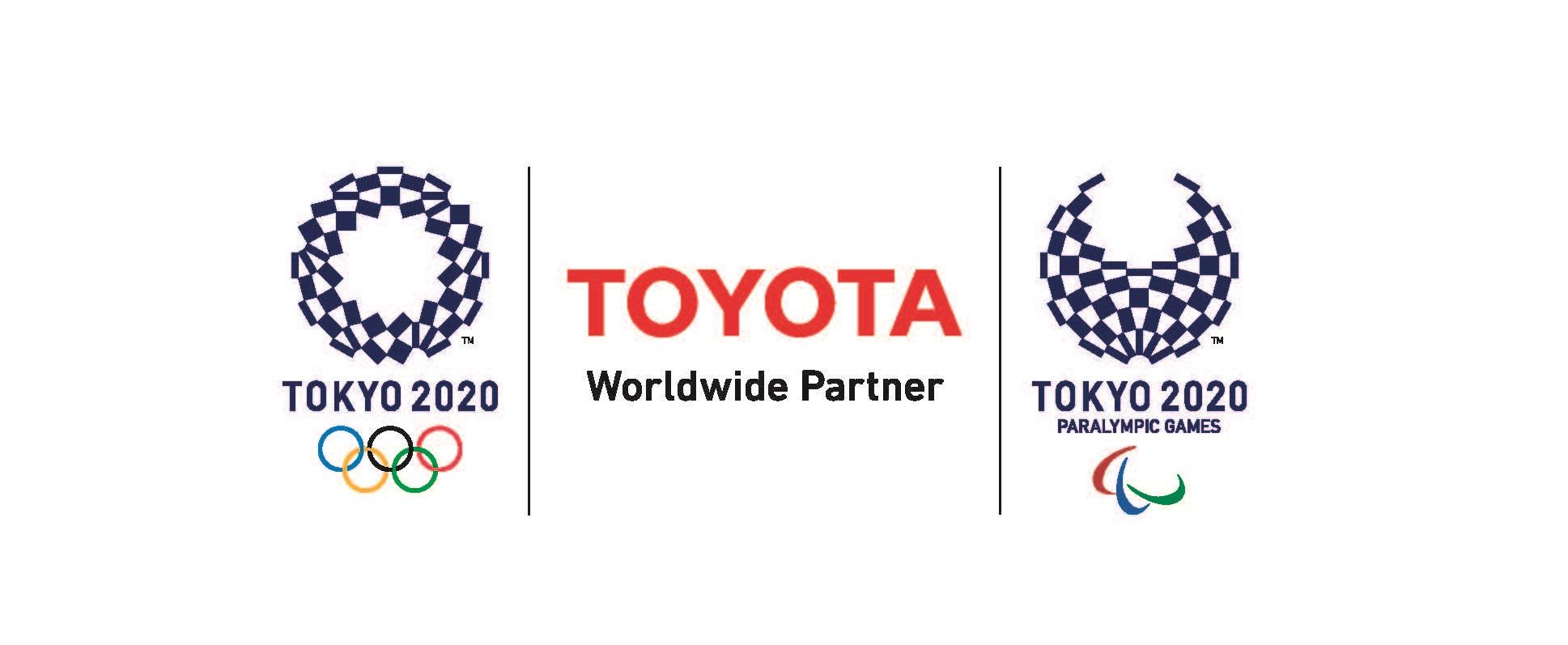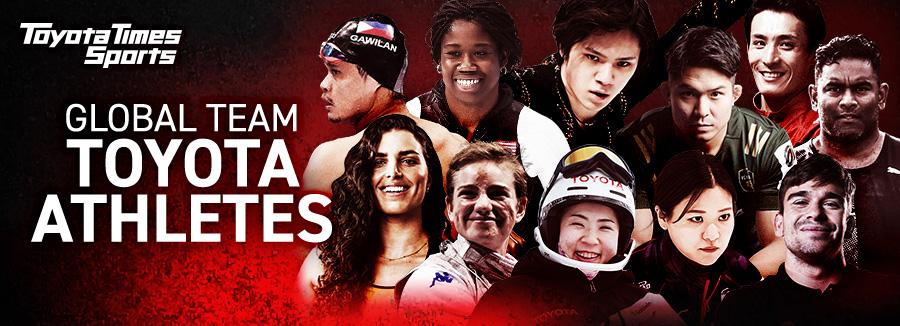
Akio Toyoda visited the e-Palette operation supporting genba on the day of the Tokyo 2020 Games' opening ceremony. He gave unique but important advice to its members, who had been nervous and believing that there was zero tolerance for mistakes.

Toyota is contributing to safe event management by providing mobility support so that athletes can give their best performance with peace of mind in the Olympic Games Tokyo 2020. One form of that support is the e-Palette, 16 units of which are on hand at the Olympic Village to facilitate athletes’ movement within the village.
Although each e-Pallet has an onboard safety operator, the vehicles are essentially autonomous. A team of mainly Toyota employees works around the clock in four groups in three shifts to keep the e-Pallets going.
The operation of the e-Palettes went into full swing with the arrival of athletes staying at the village. President Akio Toyoda visited the team past noon on July 23, the day of the Tokyo 2020 Games’ opening ceremony, to offer words of encouragement.
Akio entered the control room wearing his usual work clothes, just like when he inspects genba (where the action takes place) of a plant.
First, he checked the real-time status of the e-Palettes on a monitor as the person in charge explained what was going on. He then asked if there had been any trouble that caused a switch from autonomous to manual operation, to which the reply was: “Thankfully, so far no.”
What followed was an interesting exchange between Akio and the person in charge.
Akio: You’ll have to deal with trouble sooner or later.
PIC: We’re ready.
Akio: It’ll come once or twice, and I think you should look forward to it.
PIC: We’re kind of nervous about it.
Akio: I think you should rather look forward to dealing with trouble...
PIC: Thank you very much!
As he thanked Akio for the advice, the look on the face of the person in charge showed relief and joy. The exchange didn’t stop there.
Akio: You should feel something like “Oh, we’ve been preparing!” when trouble finally comes.
PIC: That coming from you makes me very comfortable.
Akio: Things happen. That’s the way things are.
PIC: We’re constantly trying to make sure that trouble doesn’t happen.
Akio: No, no, no… No need to pursue zero trouble. It’s OK for it to happen!
PIC: Ok, thank you.
Akio: That’s why you’re prepared. Nothing dangerous has ever happened yet, right?
PIC: So far.
Akio: That's the most important. That’s it! Other than that, an emergency stop or things like that are acceptable.
PIC: Our instructions are to press the emergency stop button without hesitation.
Akio: Yes. At any rate, just make sure there aren’t any accidents. As for the rest, trouble is ok, just go with it! You don’t have to take “just-in-time” that far, as running a little late is acceptable. Don’t rush it and end up hurting someone. Just make sure of that.
With that, it was clear that the person in charge, as well as the entire team, seemed more relaxed.
The entire team had surely been preparing for the event with the mindset that mistakes had to be avoided at all costs. And then, with tension building as the Games were about to get underway, here comes the president walking in.
It’s normal for staff members to brace themselves when the top person comes around, thinking they’ll be told: “We’re on a big stage and the whole world is watching. We’ve got a chance to showcase our technology. Don't mess it up!”
But when Akio came, he told the team to look forward to dealing with trouble. He let them know that emergency stops weren’t a problem, and he summed things up by saying: “Just go with it!”
For sure, Akio told them to make sure that they covered all that was essential. But his disarming approach was, without a doubt, like a saving grace for the nervous e-Palette team.
Akio was likely well aware that the team had repeatedly practiced handling various contingencies. That’s probably why he said what he said, knowing of the challenging days to come.
After that, Akio shared a few words with each person in the room before addressing everyone all together one more time.
Akio
Lots of things have happened related to the Tokyo 2020 Games, and things are tough for both the athletes and those working at the genba.
The media keep pointing the spotlight at disarray among the top leaders. Not much attention has been paid to how hard people at genba like you are working.
But it doesn’t matter. Just do it.
Let’s just focus on what we do!
That’s why we’re here. And if there wasn’t anyone on the ground making things happen, I don’t think a safe and secure Olympic Games would be possible.
Transporting people might only mean moving people from point A to point B, but “move” in English can also mean moving people emotionally.
If you can leave people feeling that the Tokyo 2020 Games were great, I’m sure that would leave them feeling good about Japan, too, lifting their thoughts above the currently reported disarray. That’s why I want you to do your best.
As soon as Akio finished, another member of the team, who was seated to his side monitoring operations, started being busy with a small problem that came in over the radio. Noticing that, Akio turned to him.
Akio: Trouble?
PIC: Yes, a small thing...
Akio: No big deal, right?
Then Akio, as if talking to himself but in a way that everyone could hear, said: “I wonder how prepared this team will be when big trouble comes…” He immediately followed with: “Well, please take care of your health and do your best!" and then left the room.
That evening, Akio, who had already declared that he wouldn’t attend the opening ceremony, was in the studio of the Toyota Times Athletes Now program to cheer on Toyota athletes.
After his appearance, a member of the editorial staff asked him: “Why did you go to an operational support site first thing on opening day?” Below is what he had to say.
Akio
I, myself, have played my role as a kaizen person ever since I was young.
Going all the way back then, there were many times when I felt helpless because no matter how hard I tried to do kaizen, I could not get the understanding of those around me or other departments. People were sometimes against me or even got in my way. I’ve had countless experiences where I’ve tried my best, but came up empty-handed.
I just couldn’t help but worry that colleagues of mine dispatched to the genba of the Games might be experiencing the feelings I once had as they work so hard. So, I had kept thinking that I should go to where the action was taking place as soon as operations got underway.
As I said in my video message the other day, athletes are like family to me. And I also consider those providing practical support on the genba behind the Games as my family. If a family member is working hard on the genba, I want to go straight there and talk to them. I want to ask: “Is everything OK?”. If there’s anything I can do for them, I want to do it.
When I went to the genba today and talked to everyone, I could immediately almost smell the same spirit of kaizen. So even though it was the first time for me to meet those members, I knew right away that we spoke the same language. Just I had thought, they are cherished members of my own family.
I’m really glad that I had a PCR test taken in advance so that I could go to the genba as soon as the Games started.


